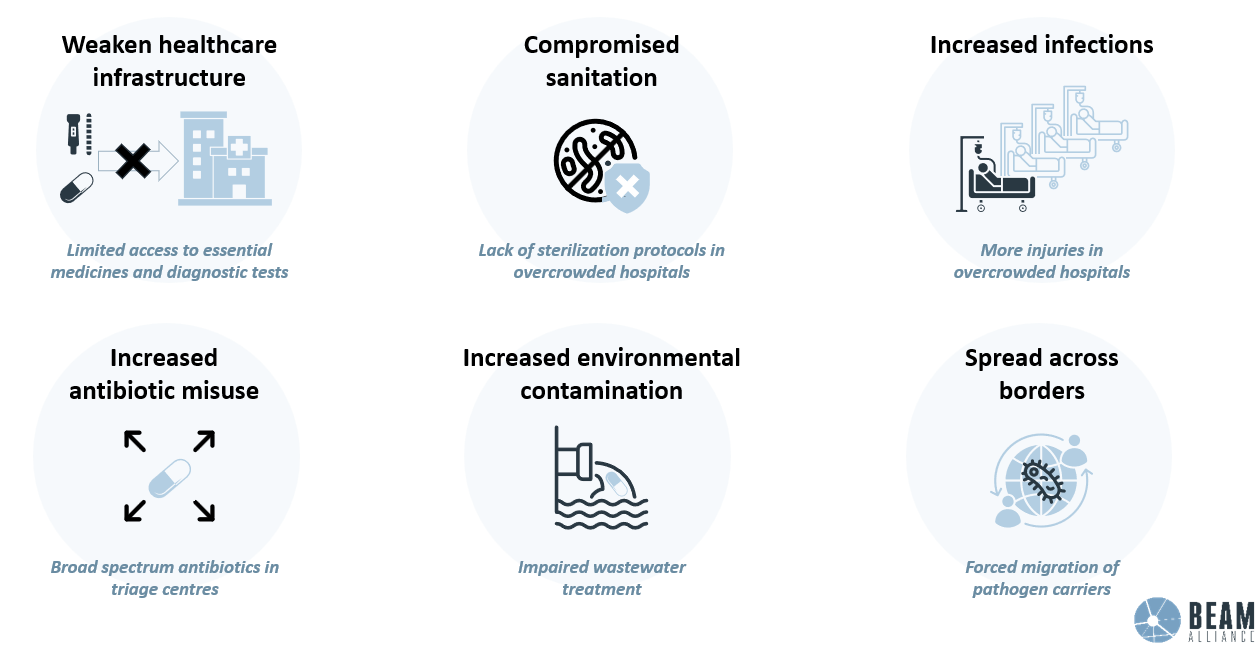
AMR is already a threat to public health, a threat that grows every year and compromises many modern medical interventions. Recent armed conflicts have highlighted the increased risks of resistance and transmission, including across borders.
For instance, reports indicate the presence of a significant issue involving the spread of carbapenemases, particularly those belonging to the NDM- and OXA-48-groups, within the Ukrainian healthcare system. These isolates cause severe, difficult-to-treat nosocomial infections within a resource-scarce healthcare system under immense pressure.
Indeed, war-related disruptions are fuelling AMR in many ways:
· In weaken healthcare infrastructure, caregivers have limited access to essential medicines and diagnostics, leading to suboptimal patient management.
· Sanitation might be compromised in overcrowded medical facilities and makeshift field hospitals lack essential sterilization protocols.
· Increased numbers of injuries in overcrowded hospitals facilitate infection and cross-contamination.
· Triage centres may use broad-spectrum antibiotics, increasing the potential for misuse.
· Increased environmental contamination (e.g. heavy metals from weapons select for antibiotic-resistant bacteria, impaired wastewater treatment releases antibiotic residues) can significantly impact AMR.
Besides, there have been multiple cases of secondary spread of carbapenemase-producing Gram-negative bacilli in countries receiving war wounded. Indeed, forced migration, displacement of populations, refugee camps with poor infection control are breeding grounds for resistant pathogens, increasing their spread across boarders putting all neighbouring territories at risk.

As the Preparedness Union Strategy is being unveiled, it is of the utmost importance to really think through the impact AMR could have in case conflicts on Europe’s doorstep continue, or worse, spread.
A discussion organised by the UK mission on March 10 provided an initial overview of the issues and associated risks. The discussion should be continued, and AMR integrated into biodefence programmes, including access to existing countermeasures and supporting the development of new ones.


